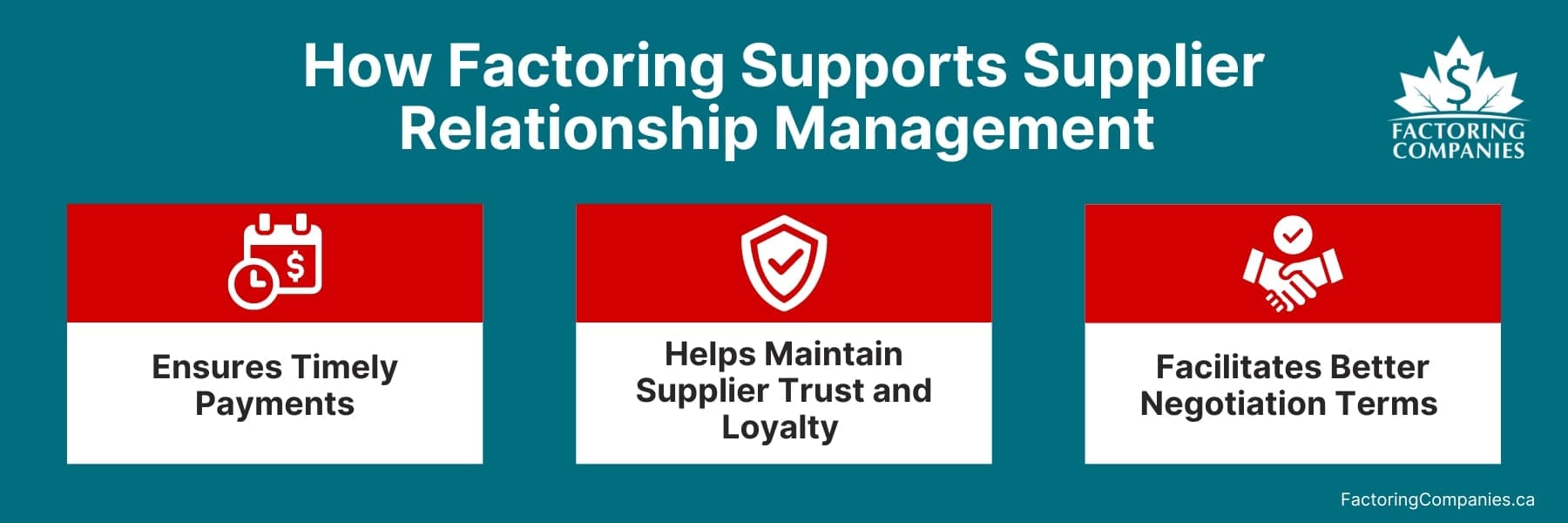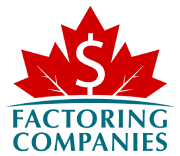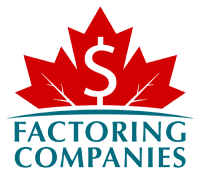
A typical business spends 15 to 27 percent of its total revenue on external suppliers, according to KPMG. With such significant investments, much of your business’s profit and growth potential hinges on these relationships. Yet, nearly half of them fail, Forbes reports. Effective supplier relationship management (SRM) is critical to building long-term partnerships and giving your business the advantage it needs to succeed. On this page, we’ll explore what effective SRM can do for you and how to support your SRM efforts with factoring.
Introduction to Invoice Factoring
Invoice factoring is a financial solution that allows businesses to convert their unpaid invoices into immediate cash. Essentially, a company sells its invoices to a third-party factoring company at a discount, typically between 60 and 95 percent of the invoice value. The factoring company then collects payment from the business’s customers when the invoice is due.
This process is particularly beneficial for small businesses that face cash flow challenges due to long payment terms, such as 30, 60, or even 90 days. By leveraging factoring, these businesses can access the funds tied up in unpaid invoices almost immediately, which they can then use to cover operational costs, invest in growth, or manage day-to-day expenses without waiting for customer payments.
Types of Factoring
There are two primary types of factoring: recourse and non-recourse. With recourse factoring, the business remains liable if the customer fails to pay the invoice. With non-recourse factoring, the factoring company assumes the risk of non-payment, though this type often comes with higher fees.
Factoring vs. Traditional Loans
Factoring is not a loan. It’s a financial transaction. This distinction is crucial because it means businesses don’t incur debt or affect their credit ratings. Instead, they simply accelerate their cash flow by selling a financial asset (the invoice). This can be especially valuable in industries like manufacturing, transportation, and construction, where large invoices are common, and delayed payments can strain supplier relationships.
Supplier Relationship Management Basics

SRM is a systematic approach to managing a company’s interactions with the organizations that supply the goods and services it needs to operate. SRM aims to develop and maintain mutually beneficial relationships with suppliers to ensure that the business’s supply chain is efficient, cost-effective, and resilient.
Importance of SRM
Effective SRM is crucial for several reasons:
- Cost Management: Building strong relationships with suppliers can lead to better pricing, bulk discounts, and more favourable payment terms, directly impacting the bottom line.
- Quality Assurance: Good relationships often result in higher quality products and services, as suppliers are more likely to prioritize your business and adhere to your quality standards.
- Supply Chain Continuity: In industries where supply chain disruptions can be costly, having a strong relationship with suppliers can ensure timely delivery and reduce the risk of delays.
- Innovation and Collaboration: Close collaboration with suppliers can lead to innovative solutions and improvements in products or services, giving businesses a competitive edge.
Key Challenges in Managing Supplier Relationships
Managing supplier relationships comes with its own set of challenges, particularly for small businesses that may lack the resources and leverage of larger organizations.
- Cash Flow Constraints: Small businesses often face tight cash flow, making it difficult to pay suppliers on time. Late payments can strain relationships and lead to less favourable terms or a loss of trust.
- Limited Bargaining Power: Smaller businesses may not have the same negotiating power as larger companies, which can result in higher prices, less favourable terms, or lower priority in the supplier’s customer base.
- Resource Limitations: Managing supplier relationships requires time and resources. Small businesses may struggle to allocate enough of either, leading to less proactive management and missed opportunities for strengthening partnerships.
- Supplier Dependency: Small businesses may rely heavily on a few key suppliers, making them vulnerable to disruptions if those suppliers experience issues or decide to discontinue the partnership.
- Communication Barriers: Effective communication is critical in SRM, but small businesses may face challenges in maintaining regular, clear, and open communication with suppliers, particularly if they lack dedicated staff for supplier management.
How Factoring Supports Supplier Relationship Management
Now that we’ve covered the background, let’s take a look at how factoring supports SRM.

Ensuring Timely Payments to Suppliers
One of the most direct ways that factoring supports SRM is by ensuring that suppliers are paid on time. In many cases, small businesses struggle with delayed payments from their own customers, which can create a domino effect, delaying their ability to pay suppliers. Factoring helps to eliminate this issue by providing immediate cash for unpaid invoices, allowing businesses to meet their payment obligations promptly.
For example, a small manufacturing company in Ontario might have a large order for a retailer, with payment terms of 60 days. Instead of waiting two months to receive payment, the company can factor the invoice and receive most of the funds within a day or two. This cash can then be used to pay suppliers on time, avoid late fees, maintain a good credit rating, and preserve the relationship with key suppliers. Similarly, factoring enables businesses in various industries—such as temporary staffing companies—to maintain timely payments to their service providers and suppliers, reinforcing strong business relationships.
Maintaining Supplier Trust and Loyalty Through Consistent Cash Flow
Consistency is key in any business relationship, and this is especially true in SRM. When suppliers know they can rely on a business to pay them on time, trust is built, and loyalty is strengthened. This trust can lead to suppliers going the extra mile for your business, whether by prioritizing your orders during busy times, offering more favourable terms, or even providing early access to new products.
Factoring provides the consistent cash flow needed to maintain this trust. For instance, a small logistics company in British Columbia might rely on a particular supplier for truck maintenance and fuel. By using factoring to ensure that invoices are paid promptly, the logistics company can solidify its relationship with the supplier. Over time, this could lead to benefits such as discounts on bulk purchases or more flexible credit terms, further enhancing the business’s operational efficiency.
Facilitating Better Negotiation Terms with Suppliers Due to Reliable Cash Flow
Stable cash flow helps you maintain existing supplier relationships and puts you in a stronger position when negotiating terms with new or existing suppliers. When a business can demonstrate that it consistently pays on time, it gains leverage in negotiations. Suppliers are more likely to offer better prices, longer payment terms, or additional services because they see the business as a low-risk, reliable partner.
Benefits of Factoring Beyond Supplier Relationship Management
In addition to the benefits we’ve explored, factoring can strengthen a business’s financial foundation and also contribute indirectly to more robust and beneficial supplier relationships.
Improving Overall Cash Flow
One of the most significant benefits of factoring is the immediate improvement in cash flow. By converting unpaid invoices into cash, businesses can access the funds they need to cover daily operational expenses, invest in growth opportunities, and navigate unexpected financial challenges. This steady cash flow ensures that a business remains agile and can respond quickly to changing market conditions.
For example, a small wholesale distributor in Quebec might experience seasonal fluctuations in demand, with peak periods requiring additional inventory purchases. Factoring enables the distributor to maintain a healthy cash flow during slower periods, ensuring that they have the funds to purchase stock when demand surges. This not only stabilizes the business but also enhances its ability to meet customer needs promptly.
Supporting Business Growth
With improved cash flow comes the potential for growth. Factoring provides businesses with the financial flexibility to invest in new opportunities without waiting for outstanding invoices to be paid. Whether it’s expanding product lines, entering new markets, or hiring additional staff, the availability of immediate funds through factoring can be a catalyst for growth.
Picture a technology startup in Toronto that secured several large contracts but needs to hire more developers to meet project deadlines. Instead of waiting 60 or 90 days for clients to pay their invoices, the startup can factor its invoices and use the funds to expand its team. This ability to scale quickly can give the startup a competitive edge, allowing it to take on more projects and grow its market share.
Enhancing Credit Management
Factoring can also play a crucial role in managing a business’s credit. Because factoring provides immediate cash without adding debt to the balance sheet, businesses can maintain or even improve their credit ratings. This is particularly important for small businesses that may struggle to secure traditional financing due to limited credit history or existing debt.
A small printing company in Manitoba, for example, might use factoring to manage cash flow while avoiding the need for a bank loan. By maintaining a strong credit rating, the printing company can continue to access favourable credit terms from suppliers and lenders, further supporting its financial stability and growth.
Indirect Contributions to Stronger Supplier Relationships
While these benefits extend beyond SRM, they indirectly contribute to stronger supplier relationships in lots of ways as well.
- Consistency in Payments: With improved cash flow, businesses can ensure that payments to suppliers are always on time, reinforcing trust and reliability in the relationship.
- Ability to Invest in Quality: The financial flexibility provided by factoring allows businesses to invest in higher-quality materials or services from suppliers, leading to better products and, potentially, stronger market positioning. This can create a positive feedback loop where suppliers are eager to maintain a relationship with a growing, successful business.
- Stronger Negotiation Position: As businesses grow and stabilize through the use of factoring, they often find themselves in a better position to negotiate favourable terms with suppliers. Suppliers are more likely to view the business as a long-term, low-risk partner, which can lead to discounts, extended credit terms, or other benefits that further enhance the relationship.
Considerations and Best Practices for Factoring
Choosing the right factoring company and integrating factoring strategically into your supplier relationship management requires careful consideration and proactive management. By focusing on the key factors and best practices outlined below, you can ensure factoring supports your immediate cash flow needs and contributes to long-term business success and stronger supplier partnerships.
Key Factors to Consider When Choosing a Factoring Company
First, let’s take a quick look at what matters as you explore your factoring options.
Reputation and Experience
It’s crucial to choose a factoring company with a strong reputation and proven track record, especially in your industry. Look for companies that have experience working with businesses of your size and type, and consider checking references or reading reviews from other Canadian small businesses.
For example, a small trucking company in Alberta might prefer a factoring company that specializes in transportation and has a deep understanding of the unique challenges and opportunities in that sector.
Fee Structure and Costs
Factoring fees can vary significantly, so it’s important to fully understand the costs involved. Some factoring companies charge flat fees, while others may have tiered pricing based on factors such as the size of the invoices or the creditworthiness of your customers.
Compare fees across multiple providers to ensure you’re getting a competitive rate that won’t eat too much into your profit margins. Also, be aware of any hidden fees, such as charges for setting up the account, handling disputes, or terminating the agreement early.
Contract Terms
Review the contract terms carefully, particularly regarding recourse vs. non-recourse factoring. Pay attention to the length of the contract and whether it includes exclusivity clauses that require you to factor all your invoices with that company.
Customer Service and Support
The quality of customer service can significantly impact your experience with a factoring company. Look for a provider that offers responsive, knowledgeable support and is willing to work closely with you to tailor their services to your needs.
For instance, if you run a small business in a remote part of Canada, you might value a factoring company that offers robust online services and support channels that accommodate different time zones.
Flexibility and Customization
Consider how flexible the factoring company is in meeting your specific needs. Can they tailor their services to match your invoicing cycle or the particular requirements of your industry? Flexibility in services can be crucial as your business grows or faces changes in the market.
Best Practices for Integrating Factoring into SRM Strategies
Address the points below as you get started with factoring to ensure you maximize the benefits of factoring and have a smooth transition.
Communicate Clearly with Suppliers
Transparency is key when using factoring to manage supplier relationships. Let your suppliers know that you’ve partnered with a factoring company to ensure prompt payments. This can enhance trust and demonstrate your commitment to maintaining a reliable relationship.
For instance, a machine shop in Saskatchewan might inform its key suppliers that they’re using factoring to ensure all invoices are paid within 30 days, which can help suppliers plan their cash flow and inventory management.
Align Factoring with Your Cash Flow Needs
Use factoring strategically to match your cash flow needs with supplier payment schedules. For example, if you have suppliers that offer early payment discounts, factoring can help you take advantage of these opportunities by providing the necessary cash flow to pay invoices quickly.
This practice not only saves money through discounts but also strengthens your relationship with suppliers by demonstrating your financial reliability.
Monitor and Manage Costs
While factoring can provide significant benefits, it’s important to monitor the costs associated with it. Regularly review the fees and the impact on your profit margins to ensure that factoring continues to be a cost-effective solution for your business.
If the costs start to outweigh the benefits, consider renegotiating terms with your factoring company or exploring alternative financing options.
Integrate Factoring into Your Financial Planning
Incorporate factoring into your broader financial strategy. Use the cash flow stability provided by factoring to plan for growth, manage debt, and invest in new opportunities. By making factoring part of your long-term financial planning, you can maximize its benefits and ensure that it contributes to the overall health of your business.
For example, a growing retail business in British Columbia might use factoring to stabilize cash flow during expansion, allowing them to open new locations or increase inventory without waiting for customer payments.
Regularly Review Supplier Relationships
Use the stability provided by factoring to periodically review and assess your supplier relationships. With consistent cash flow, you may find opportunities to renegotiate terms, explore new supplier partnerships, or diversify your supplier base to reduce risk.
For instance, if you’re consistently paying suppliers on time or early, it might be worth renegotiating contracts to secure better pricing or extended payment terms, further enhancing your cash flow and financial stability.
Improve Your Supplier Relationship Management with Factoring
If factoring sounds like the ideal solution to help you improve supplier relationship management and strengthen your business overall, Factoring Companies Canada can match you with an experienced factoring company that understands your needs. Request a complimentary quote to get started.
Supplier Relationship Management and Factoring FAQs
Can factoring help in building supplier loyalty?
Yes, consistent cash flow through factoring allows businesses to pay suppliers on time, fostering loyalty and encouraging suppliers to prioritize your business.
How does factoring affect supplier trust?
Factoring enhances supplier trust by providing a reliable payment process, reducing the risk of late payments and reinforcing the supplier’s confidence in your business.
What role does factoring play in long-term supplier relationships?
Factoring supports long-term supplier relationships by stabilizing cash flow, enabling businesses to maintain consistent payment practices, which is crucial for sustaining ongoing partnerships.
How does factoring influence supplier dynamics in a business?
Factoring can positively influence supplier dynamics by improving cash flow, allowing businesses to manage their supplier interactions more effectively, and reducing dependency on any single supplier.
How can factoring improve supplier negotiations?
Reliable cash flow from factoring strengthens a business’s negotiating position with suppliers, potentially leading to better pricing, more favourable terms, improved overall contract conditions, and smoother business transactions.
What are the main benefits of invoice factoring for small businesses?
Factoring provides immediate cash flow, supports business growth, improves credit management, and helps maintain strong supplier relationships.
Is factoring a good option for managing cash flow in Canada?
Yes, factoring is a widely used solution in Canada for businesses needing immediate cash flow without taking on additional debt.
What should small businesses consider when choosing a factoring company?
Key considerations include the factoring company’s reputation, fee structure, contract terms, customer service, and flexibility.
Can factoring help with business growth?
Absolutely, factoring provides the financial stability needed to invest in growth opportunities, such as expanding product lines, entering new markets, or hiring additional staff.
For answers to common questions and more detailed insights, check out our Factoring FAQs.

About Factoring Companies Canada
Related Articles
Get an instant factoring estimate
Factoring results estimation is based on the total dollar value of your invoices.
The actual rates may differ.
CLAIM YOUR FREE FACTORING QUOTE TODAY!
PREFER TO TALK?
You can reach us at
1-866-477-1778
Get an instant factoring estimate
Factoring results estimation is based on the total dollar value of your invoices.
The actual rates may differ.
CLAIM YOUR FREE FACTORING QUOTE TODAY!
PREFER TO TALK? You can reach us at 1-866-477-1778











